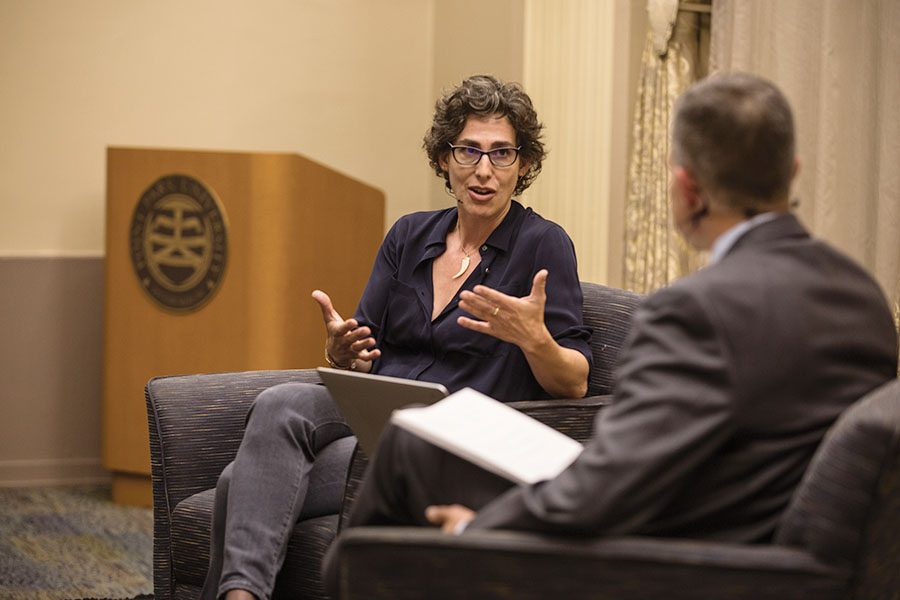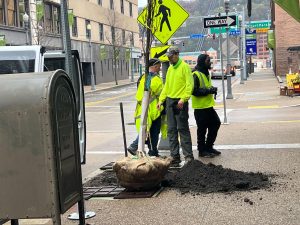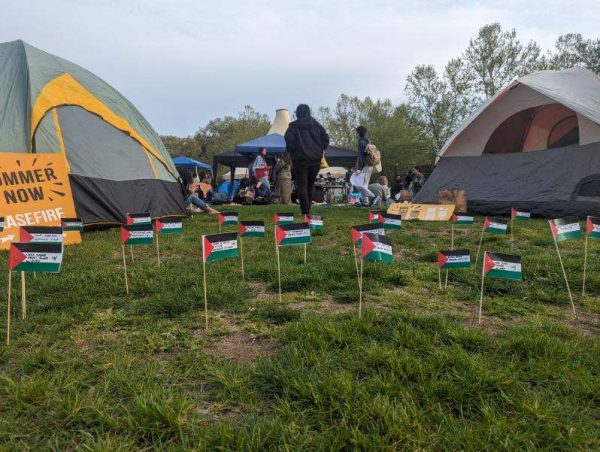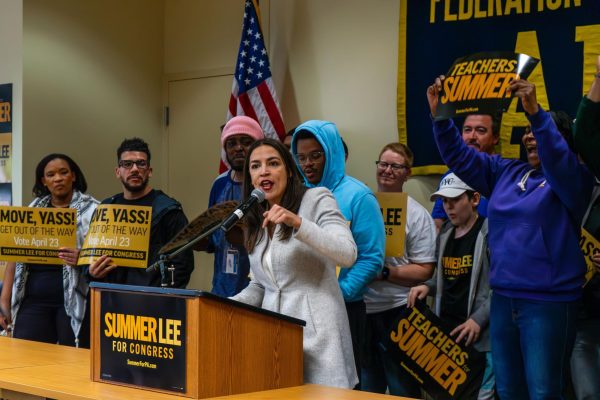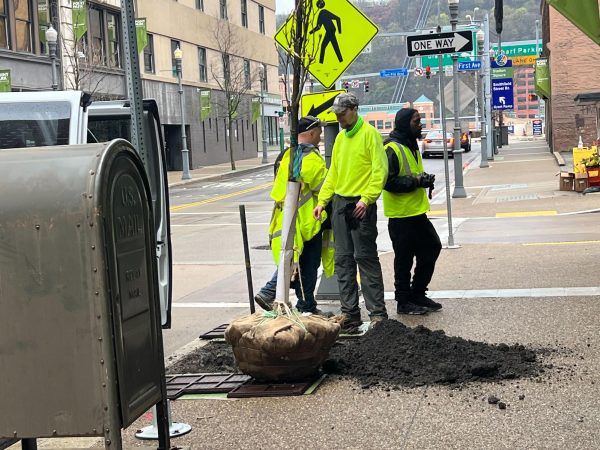CMI opening concludes with discussion by “Serial” co-creator Sarah Koenig
Photo by Chloe Jakiela
Journalist Sarah Koenig, creator of Serial podcast discussed her experience and process creating Serial, and shared experiences of being a professional journalist. The panel was a part of the CMI’s grand opening Tuesday September 13.
September 14, 2016
Two years ago, confided in her basement in State College, the idea of a true crime podcast called “Serial” was no more than just an idea for co-creator and host Sarah Koenig.
But, Tuesday night at Point Park University, Koenig spoke about that internet podcast, which has over 240 million combined downloads of season one and two. “Serial,” the name of the podcast, captured the attention of listeners all around the world seemingly smashing its original goal of 300,000 downloads.
“I never set out [or thought to] make this thing nobody else thought of,” Koenig said. “I just thought this seemed cool.”
Koenig shared anecdotes and gave insider background to “Serial” in a lively discussion with Andrew Conte, director of Point Park’s Center for Media Innovation, Tuesday evening in the Lawrence Hall Ballroom.
Koenig’s career spans across print and across the globe, including time spent in Moscow working forThe New York Times. It was in 2004 when Koenig joined the PBS program, “This American Life” as a producer before she launched “Serial” in 2014.
“It’s not just one thing,” Koenig said of the success of the two seasoned podcast. “There was an alchemy to the way it sounded. A lot of the things you hear on ‘Serial,’ like the theme song, the ‘previously on,’ the Global Link call from Adnan Syed…it’s very much like a TV show…these are all borrowed from TV.”
Koenig credits “Serial” co-creator Julie Snyder with the production aspect of the podcast, which is the key point that keeps an audience hooked.
“Suddenly people were interacting with journalism in a way they weren’t used to. They were hearing it as entertainment,” Koenig said. “Their brains were lighting up…but for a real story.”
In its two seasons, “Serial” has covered the stories of Adnan Syed, a then Baltimore teenager convicted of killing his former girlfriend and Bowe Bergdahl, an American soldier captured by the Taliban in 2009 and released as part of a prisoner swap in 2014.
It’s difficult to imagine “Serial” as anything less than it is today, but Koenig took a candid approach to the failed podcast she worked on prior.
“We ended up coming up with this idea that was kind of the opposite of ‘Serial,’” Koenig said of the beginnings of the true-crime podcast. “The [idea] would be that all the stories had to have taken place in the seven days prior to broadcast. We tried a couple of times and loved it…We presented that and everyone was ‘eh.’”
It was after that production that Koenig pitched the idea of “Serial.”
“What if we did one story, over time, week by week — one lone documentary,” Koenig said. “Everyone was great [with this idea].”
Koenig realized the success of her podcast around episode four when she learned there was a podcast about her podcast.
“That’s when I said, ‘Wait, what’s happening?’” Koenig said. “I can’t stress enough how out of touch I was with the outside world.” She also noted when the podcast hit 1 million downloads as a milestone.
Many credit season one of “Serial” to a Maryland judge granting Syed a retrial. In a way, Koenig accepts her part in this, but doesn’t take all the credit.
“The technical part of why it was overturned was not something we found,” Koenig admitted. It was the podcast, “Undisclosed” which tapped into cell phone data evidence leading to the retrial.
“We missed that,” Koenig said. “But that other podcast only happened because our podcast happened. The amount of attention suddenly brought to [Syed’s] case is crazy.”
Traci Crocker, a senior cinema production student, views Koenig as an inspiration to women in both the journalism and the production industries.
“As a woman, I enjoy seeing other very successful women doing what I aspire to do,” Crocker said. “Sometimes these industries can be very male dominant, but seeing a woman doing this inspires me.”
Conte said the decision to have Koenig close the grand opening for Point Park’s Center for Media Innovation event was largely in part to her success in a field not as widely traversed.
“As you can see, she’s doing something different, something innovative,” Conte said. “She’s not only reporting, but she’s reporting in an innovative way.”
With the opening of the Innovation Center, Conte hopes to bring in more speakers that will draw in large crowds to have discussions that will teach and inspire students.
Following the discussion, Koenig took several questions from the audience. When asked if “Serial” would return for a third season and for what story, Koenig could only say, “We’re gonna do it.”



